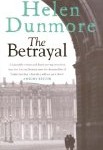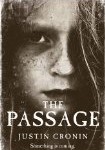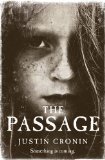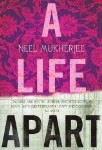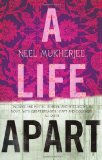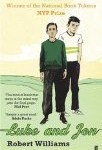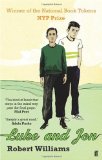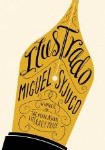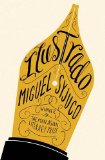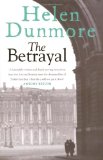
Long listed for 2010 Booker Prize
WARNING: REVIEW CONTAINS MILD SPOILERS FOR THE SIEGE
I loved The Siege so was looking forward to reading The Betrayal, but unfortunately the sequel wasn’t quite as good as I’d hoped.
The Betrayal is set 10 years after the Siege of Leningrad and follows Anna and Andrei, the young couple we first saw in The Siege, as they rebuild their lives. They no longer fear starvation, but life under Stalin isn’t easy. Andrei is a doctor at the local hospital and at the start of the book he has to make the agonising decision of whether or not to treat the son of a senior secret police officer. The young boy is seriously ill and if he fails to recover then Andrei knows his family will be brought to the attention of the authorities – something no one wants to happen.
The Betrayal is very different in style to The Siege. The Siege was packed with vivid descriptions, but The Betrayal focused on dialogue instead. This meant that the book had a much faster pace, but I didn’t feel as immersed in the Russian landscape. The claustrophobic emotion was still present, but at many points I thought that the plot moved too quickly for the reader to fully appreciate the gravity of the situation.
Much of book reminded me of Child 44, but the complexity of Tom Rob Smith’s book meant that I preferred his book. If you aren’t familiar with life in post-war Soviet Russia then The Betrayal is a good place to start, but I think that anyone familiar with this period of history will be disappointed.
I found the first section of the book quite annoying to read as it contained many references to events in The Siege:
The frost is all over them like fur. Anna drew as if only drawing would keep her alive. Here’s Marina, alive again, carefully peeling off the top, painted layer of papier mache from Kolya’s toy fort. There is nourishment in the paste that held the layers of newspaper together. They will cook and eat the papier mache.
I’m sure that people who read the first book ten years ago appreciated the reminders, but since I only read it last week I found it overly repetitive. I don’t think that readers need to know everything that came before as the events of the second book were shocking enough to stand alone.
Despite my criticisms I was gripped throughout this fast paced book and loved the ending. The Betrayal isn’t in the same league as The Siege, but it was still a good read.
Recommended.
Will The Betrayal make the Booker short list?
I’m not sure. I think this is one of the books that the judges will discuss for a long time, being middle of the list it will either miss out or just scrape through. My hunch is that it will be ranked 7/13 in the Booker list and fail to make the cut. Its inclusion would be a pleasant surprise for me though.
Did you prefer The Siege or The Betrayal?
